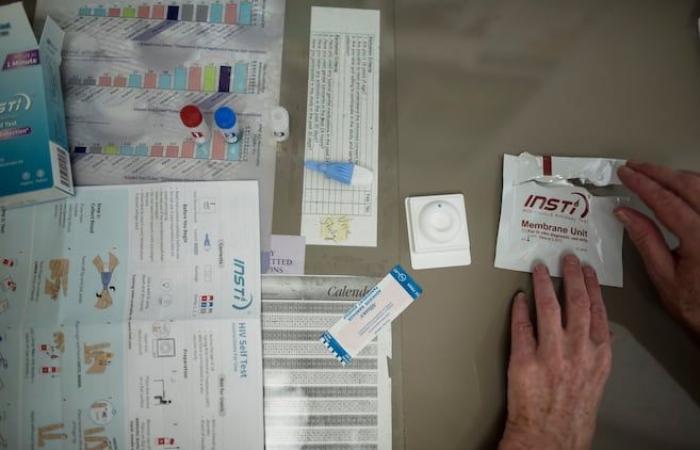This international initiative takes the form of a campaign to promote screening for HIV, hepatitis and STIs and reaches around fifty countries. It was launched in 2020 in the context of the delay in the number of tests carried out worldwide during the COVID-19 epidemic.
The Coalition of Quebec Community Organizations to Fight AIDS (COCQ-SIDA) is participating in this initiative for a fourth year. The objective is to raise awareness among Quebecers of the importance of screening. “We are not pretending that in one week we will find everyone who has an undetected case of HIV, but we want to demonstrate that it is feasible,” maintains the general director of COCQ-SIDA, Ken Monteith. He wants to send the message that it is easy to get tested and that community organizations have an important role in this screening process.
COCQ-SIDA asks that community workers be able to administer rapid screening tests for HIV and other STIs. They would thus act as an alternative access point to the health network.
The number of HIV tests recorded in 2020 was 18% lower compared to 2019. This had an impact on the spread of the infection. According to the most recent statistics from Quebec, which date from 2022, 78% of new HIV cases found were their first test. “Almost half of the people for whom we have data were considered late detection cases. This means they had had it for several years and it had started to affect their immune system,” explains Mr Monteith.
He specifies that some people have HIV without knowing it and therefore cannot control their viral load. They can spread the virus without knowing it. “The key is screening,” he emphasizes.
Inequality in access
Access to screening is unequal depending on the region, says sexologist Audrey Morabito. “Given that it’s a taboo subject, I think there are people who don’t really know where to go to get tested,” she says.
During an annual medical appointment, the patient is not immediately offered a screening test. “There is a barrier in this regard, because it is not something that is going to be done systematically. […] There is also a question of ignorance of where to go,” she notes.
People can go to one of the screening clinics, which are mainly located in large centers, or go to a CLSC, certain Family Medicine Groups (GMF) or ask their family doctor for a test.
According to Ms. Morabito, it would facilitate access if screening were systematically offered during a visit to one’s family doctor.
The sexologist also indicated that syphilis had been on the rise in Quebec in recent years. Gonorrhea is also on the increase and with chlamydia, they are the most widespread STBBIs in Quebec.
Ms. Morabito also pointed out that it is not only young people who are affected by screening. In recent years, older adults have become a growing population that increasingly contracts STBBIs.
A tool that would greatly help access to HIV testing is the self-test kit. In 2022, on the occasion of the international AIDS conference, Jean-Yves Duclos, then Minister of Health of Canada, announced the establishment of a program of free access to HIV self-testing by the through Canadian community-based HIV organizations. But this initiative ended last March.
“We still want it to be put back in place. We have made the new federal Minister of Health aware of the fact that we want this to be put back in place,” mentioned Mr. Monteith. For the moment, he says he has not had any indication that this program is being renewed.
Remember that if they receive adequate treatment and care, people with HIV can live long, healthy lives.
Sexuality still taboo
STIs, HIV and sexuality more broadly are always sensitive subjects. “I think that in our society, talking about sexuality is still taboo. Talking about drug use is still taboo. It’s a shame, comments Mr. Monteith. We need to get rid of shame and reluctance to be able to talk about it openly so that we can reach everyone and slow the spread of HIV.”
Ms. Morabito agrees, affirming that “anything that falls under the umbrella of sexuality remains taboo in 2024.”
According to her, it is a subject that is little discussed and therefore, a feeling of shame can accompany a positive screening result. The sexologist also notes that false beliefs persist, notably the idea that one can detect an STBBI in one’s partner. “Most people don’t know that the majority of STBBIs are asymptomatic, so there is no visual or physical way to tell in many cases,” she explains.
She sees International Testing Week as an initiative that has the potential to destigmatize STBBIs and encourage testing.
—
The Canadian Press’ health content receives funding through a partnership with the Canadian Medical Association. The Canadian Press is solely responsible for editorial choices.






